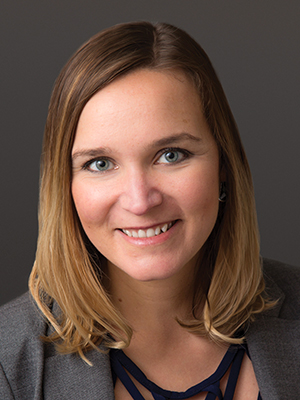 Dr. Karen Pollard
Dr. Karen PollardDr. Karen Pollard, founder of Brain Power Advisors, believes that people are capable of more than they realize. Visit www.HarnessYourBrainPower.com, email drkarenpollard@gmail.com, or call (336) 310-9260.
As a neuropsychologist, one of the most common questions I get asked is, “How can I improve my memory?”
While there are many things that people could want to remember better, by far, the one that they ask me about is memory for names. People tell me stories on a daily basis about how they couldn’t remember someone’s name (that they feel they should’ve known) and then felt embarrassed and/or frustrated.
Assign meaning
My response is two-fold: First, I dispel the myth that they “should” be able to remember names. So many people feel that they are “bad” at remembering names, simply because when they meet new people and have a conversation with them, they don’t remember their name afterward.
Guess what? No one does! Your brain is not designed to remember names, because they don’t have any innate meaning. Your brain is designed to remember things that have meaning, so you have to assign meaning to the name in order to remember it.
Also, because of this, learning names HAS to be an ACTIVE process, not a passive one. You cannot expect to talk to someone, hear their name, and remember it with zero effort. You have to TRY to remember the name on purpose.
The first step
Second, I give people the simplest, but most effective, first step in improving their memory for names (and this will work for anything that you want to get better at remembering): Make it a priority.
In order to transition from being passive about improving your memory to being active about it, you have to decide that it’s important to you. This is the same first step to accomplishing any of the life-changing goals I mentioned at the beginning of this article. Once you decide that you want to try and be better at something, you WILL get better at it, because you will more actively work at it.
Memory is no different—when you decide that you want to remember names, all of a sudden, you will put more effort into trying. That will result in the first improvements.
A method that works
My dad is the perfect example of this. He used to be just like most of us, going around telling others (and himself) that he was “bad” at remembering names. Then one day, when he was around 45 years old, he wondered whether he had to be bad at this. So, he decided to try to be better. Without any formal training or strategies, he just set out one day with the conviction that remembering names was important to him and he was going to try and be better at it.
Guess what? He got better. It was effortful at first, but as time went on, he learned strategies that worked for him and he practiced and after about a year, he was so skilled with remembering names that he regularly received compliments from people that he was the best person they’d ever met at remembering names.
All he did was make it a priority. Whatever you want to remember better, you can do it too! Stop feeling frustrated and embarrassed; just take the first step and make it a priority.
Dr. Karen Pollard believes wholeheartedly that people are capable of more than they realize. She founded Brain Power Advisors to help individuals and teams harness the power of their brains to increase efficiency and reduce stress. Visit www.HarnessYourBrainPower.com, email drkarenpollard@gmail.com, or call (336) 310-9260.

